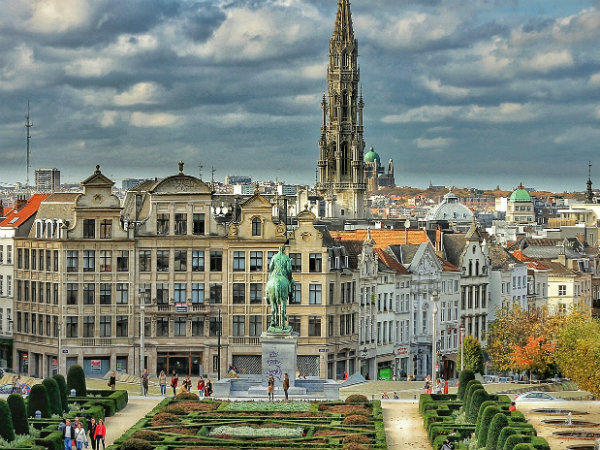Brussels tips, facts and interesting information
History of Brussels

The city of Brussels has evolved several times but to this day you can still see the original city walls. Throughout the ages Brussels has been the home of kings, a trade hub and an epicentre of many crafts.
Brussels weather and climate
Brussels’ climate is temperate. Winters are mild and summers are often rainy. Visit our dedicated page about brussels weather to learn which months rains the least and how to prepare for your Brussels holidays.
Neighbouring cities
Just a short drive from Brussels you can find some well known beauties. For example Bruges (70min drive), Ghent (50min drive) and Antwerp (50min drive). And you will definitely find something great on the road too. Read our pages to learn about one-day tours to these cities as well as about their other tourist services.
Languages in Brussels and Belgium
It is an interesting fact that Belgians do not share one common language. There are three official languages in Belgium and an official language border has been established between the regions. In Brussels people mostly speak French but all public signs and documents are in two languages.
Local customs and traditions of Brussels
Every visitor to Brussels should know some useful tips on local customs and facts. It will make your travelling experience better if you understand what is going on around you and how will people act or react.
Brussels curiosities
There are a few interesting things that have originated in Brussels that have inspired food, photographers, vegetables and animal lovers around the world. In this section you will find some real life examples of how Brussels is a word known in all parts of the world.
Living in Brussels
If you are staying in Brussels for more then just a couple of days, you will get a chance to experience the city and everyday life from more local perspective. Read about the 8 things you shouldn't miss while living in Brussels.
European institutions in Brussels
After being appointed the seat of the European Union, Brussels has become a hub of government activity. The European Commission, the European Parliament and NATO operate from Brussels and the European Council holds its quarterly summits here.
Economy of Brussels and Belgium
Beer, waffles and chocolate are usually the first trades that come to mind when talking about Belgium or Brussels. But there are many other enterprises that make up its economy.
Local Brussels government
Apart from the European institutions, Brussels has a regional government and 19 communes handling the activities of each area of the city. Each commune has its own mayor and cabinet.
Brussels pact
It is the historical initiation of a European cooperation that set the basis for the current European Union. The Brussels Pact was signed after the end of World War II by representatives of five countries and was a contract to build Western European economic, social and cultural cooperation.
Cosmopolitan Brussels
Brussels is one of the most international cities in the world. 27% of the population is made up of foreigners, not including those who have taken Belgian citizenship. In following with its status as the Capital of Europe (the seat of the European Union), Brussels is also the location for 40,000 EU employees, 4,000 NATO employees and hosts about 300 permanent representations: lobby groups, embassies and press corporations.
Brussels in Numbers
On the last count there were 249 butchers, 874 hairdressers and 647 pharmacies in the city. This can be noticed almost immediately when you walk down the street. You will always see at least 1 hairdresser and 1 or 2 pharmacies. Here are some more numbers:
Conventional name: Brussels Capital-Region / Region de Bruxelles-Capitale
Local name: Bruxelles (French) / Brussels (Dutch)
Population: 1,080,790
Area: 161.4 sq km (62.2 sq mi)
Location: An enclave at the south of Flanders Region above the Language Frontier
Official languages: French and Dutch (Flemish)
Brussels dial code: (0)2
Regional symbol: Iris flower
Quick facts about Belgium
Belgium became an independent state in 1830 after protests against the policies of King William of Netherlands. Since then, Belgium has created its own Constitution and proclaimed its own sovereignity. King Leopold of Saxe-Coburg was the first king of the Kingdom of Belgium.
Conventional name: Kingdom of Belgium
Local name: Belgique (French) / Belgie (Dutch)
Capital city: Brussels
Population: 10.5 million (UN, 2008)
Area: 30,528 sq km (11,787 sq miles)
Location: Western Europe, bordered between the Netherlands, Germany, France and the North Sea
Time zone: GMT +1 (daylight savings time from end of March until end of October)
Official languages: French, Dutch (dialect called Flemish) and German
International dial code: +32
Internet domain: .be
Monetary unit: Euros (€)